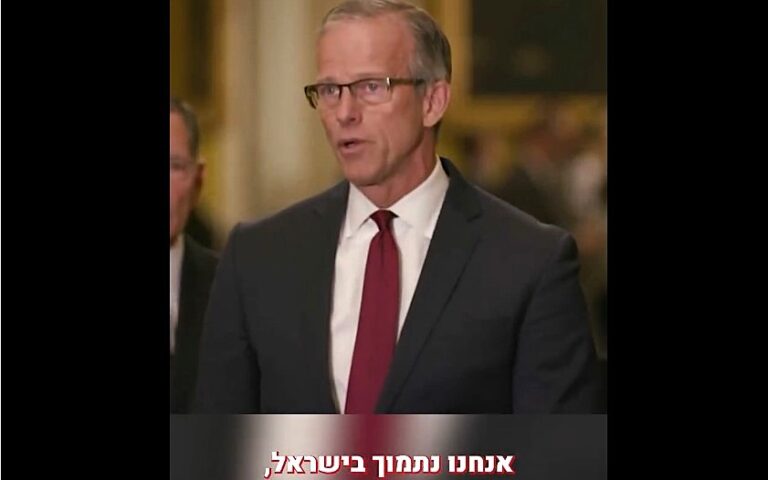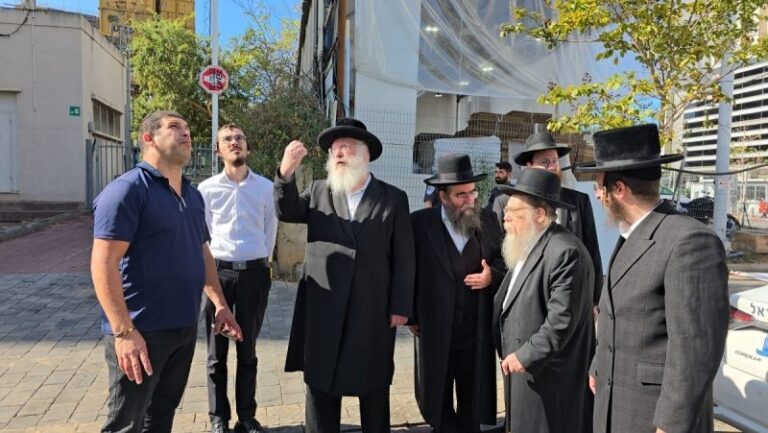The need for personalized solutions in the Jewish education system was been felt long before the pandemic started, but now, in light of the disruption caused by COVID-19, there is an opportunity to discuss in depth certain topics that were not able to be addressed before. Leaders in the field of Jewish Education say that one of the most critical issues is the gap between the enormous investment in Jewish education and the disappointing results achieved as well as the degree to which Jewish students feel connected to what they are learning. These leaders feel that something is missing in the Jewish students’ ability to achieve high results as well as to feel that the material they are learning is relevant to them. We have the opportunity to reexamine this system.
There is an enormous difference between the quality of secular versus Jewish studies within Jewish day schools. Unlike secular studies, which are based on an “Every Student Succeeds” model, Jewish and Hebrew studies are not standardized, and that can be a challenge when it comes to addressing the needs of modern students and providing deeply meaningful experiences for them.
Although Jewish day schools are fully aware of the limitations of the traditional model and are trying hard to address their shortcomings one step at a time, the time for small steps may be over. As demonstrated by the informal Jewish education sector, a change in approach is needed, and the only way to drive innovation in education is to take big, bold steps. Over the past two decades, organizations such as Birthright and the Jewish camping world have shown that scaling up their ideas and fostering a culture of innovation brings in funding and makes change possible. The formal Jewish education sector has a lot to learn from these informal initiatives and following in their footsteps can help it jumpstart the revolution it needs so much.
In order for young Jewish students to become knowledgeable and passionate citizens, while remaining connected to their heritage, we must first empower teachers so that they can create transformative experiences in the classroom. And the base is already there: the Jewish education sector already has kind, caring, and committed teachers who are passionate about their students’ education both inside the classroom and outside of it. With the right training and tools, every teacher can become an outstanding educator.
To achieve this goal, we need new infrastructure for Jewish studies – a central hub inspired by the successful model of informal organizations, which can provide educators with comprehensive formal training and all the up-to-date tools and resources they need to transform the learning experience.
This is where the World Center for Jewish Education comes in. The World Center for Jewish Education is a lean, creative team of experienced pedagogical experts that’s committed to empowering Jewish schools through innovative, personalized solutions. WCJE is an independent NGO, and its expertise spans from the traditional classroom setting to online learning.
It is clear that the Jewish education system is at a crossroads and that the only way for Jewish schools to grow new generations of well-adapted, active, and literate students is to change the way that the Jewish community thinks about and invests in Jewish studies. Over the years, progress has been made at a steady pace in improving the quality of Jewish education. However, sometimes there is a need for a significant change. The WCJE’s approach is that successful initiatives don’t necessarily have to shatter the existing paradigm. Instead, they can start from small or old projects that can be expanded in new ways. After all, teachers are not the shortcoming of the current system. The issue is the gap between schools that have the best tools at their disposal and those that do not.
The WCJE strategy focuses on three core steps:
- The teacher comes first. The Jewish education system already has many passionate teachers who are committed to their students’ education. However, we find that particularly in the fields that are so important to us, namely, Jewish and Hebrew studies, there are teachers who are missing sufficient background and an orderly list of goals and objectives. These teachers find that the training they have received is not enough and they would like to receive ongoing development. The World Center for Jewish Education helps educators gain access to the best educational materials and offers them personalized training solutions so that they can reach their full potential.
- Each school should have a curriculum that suits its philosophy.
There is currently a disparity between the quality of the curriculum that Jewish students are accustomed to in their general studies and the curriculum they receive in Jewish studies. Because each Jewish day school has unique characteristics, changing the curriculum can be challenging. WCJE has an inclusive approach, helping schools design a curriculum that suits their unique needs while at the same time respecting budget constraints.
- Educators should receive professional evaluation.
To optimize the learning experience and see if the curriculum is working, educators should receive regular evaluations. WCJE helps Jewish schools implement these professional evaluation methods, thus reducing reliance on subjective impressions.
At the World Center for Jewish Education, the focus falls on enhancing the educational experiences while remaining mindful of each school’s unique requirements. Communication is essential, so the team always keeps in touch with schools to determine their needs and assist them with appropriate solutions:
- Educational resources. Depending on each school’s needs, WCJE gathers the best curricula from around the world, helps schools implement them systematically, and provides training for educators along the way.
- Strategic planning. The WCJE team has one-on-one discussions with principals so that they can adapt their strategies to the needs of their community and teach Jewish studies in a way that’s relevant to the daily lives of their students.
- Resource Management. Due to the WCJE’s overarching perspective and experience, they are able to recommend the most efficient allocation of funds so that the investment in formal Jewish education will achieve optimal results within the existing budget. They are also able to help schools implement state-of-the-art education solutions in a cost-effective way.
- Measurement and evaluation. To encourage consistently high teaching standards, WCJE provides continuous evaluation for educators.
- Marketing and branding. The WCJE will work to consolidate and communicate a united vision of formal Jewish education, so that Jewish students and parents will understand the importance and benefits of choosing Jewish schools over public schools.
The mission of the World Center for Jewish Education isn’t to become a large bureaucratic body that overrides educational institutions. Instead, it draws inspiration from the innovation hubs in the technology sector and complements the work of educational institutions with smart, creative, and flexible solutions. The programs suggested by WCJE are dynamic and are designed for changing times: they explore the best ways to include Jewish studies in the curriculum in a way that enriches the students’ lives, they examine the challenges that could hamper implementation, and they adapt teaching tools to make the learning experience more interactive.
The World Center for Jewish Education has already presented their vision to principals of Jewish day schools around the world, and so far, the vast majority of institutions have acknowledged the need for a centralized hub. In the few cases where school heads expressed their concerns over budget or cultural differences, WCJE is committed to approaching these challenges in a thoughtful manner.
We invite all Jewish educators, institutions and organizations to join us in taking advantage of this moment to revitalize the formal Jewish school system. Together, we can lead the changes necessary to empower teachers, improve outcomes and ensure a thriving future for Jewish education.











